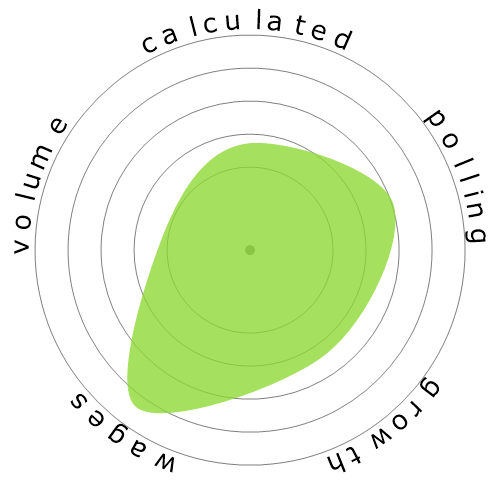Commercial Pilots
Where Would You Like to Go Next?
Or, Explore This Profession in Greater Detail...


What does this snowflake show?
What's this?
We rate jobs using four factors. These are:
- Chance of being automated
- Job growth
- Wages
- Volume of available positions
These are some key things to think about when job hunting.
People also viewed
Calculated automation risk
Moderate Risk (41-60%): Occupations with a moderate risk of automation usually involve routine tasks but still require some human judgment and interaction.
More information on what this score is, and how it is calculated is available here.
User poll
Our visitors have voted there's a low chance this occupation will be automated. However, the automation risk level we have generated suggests a higher chance of automation: 55% chance of automation.
What do you think the risk of automation is?
What is the likelihood that Commercial Pilots will be replaced by robots or artificial intelligence within the next 20 years?
Sentiment
The following graph is shown where there are enough votes to produce meaningful data. It displays user poll results over time, providing a clear indication of sentiment trends.
Sentiment over time (quarterly)
Sentiment over time (yearly)
Growth
The number of 'Commercial Pilots' job openings is expected to rise 5.7% by 2033
Total employment, and estimated job openings
Updated projections are due 09-2025.
Wages
In 2023, the median annual wage for 'Commercial Pilots' was $113,080, or $54 per hour
'Commercial Pilots' were paid 135.3% higher than the national median wage, which stood at $48,060
Wages over time
Volume
As of 2023 there were 52,750 people employed as 'Commercial Pilots' within the United States.
This represents around < 0.001% of the employed workforce across the country
Put another way, around 1 in 2 thousand people are employed as 'Commercial Pilots'.
Job description
Pilot and navigate the flight of fixed-wing aircraft on nonscheduled air carrier routes, or helicopters. Requires Commercial Pilot certificate. Includes charter pilots with similar certification, and air ambulance and air tour pilots. Excludes regional, national, and international airline pilots.
SOC Code: 53-2012.00
Comments (107)
Personally, I think people will accept it surprisingly quickly after some initial hesitancy, just like there was with AI-generated content and general purpose LLM chatbots at the beginning. (There still is resistance - and I'm part of it - but ChatGPT etc. has already taken a huge chunk out of Google's market share, and I know so many people of all ages who treat its answers as gospel.) By the time Gen Alpha has come of age, long before 2046, unmanned cars and planes will be a standard part of their life, like so many "robot" jobs.
Rightly or wrongly, with the number of DEI initiatives at present and several recent high-profile transport incidents caused by user error, I foresee many people choosing AI over humans in life-or-death professions. I make no judgement on that, personally, but I know a lot of people are bearish on such hiring policies, especially in critical industries. As for the technology, one only need look at the progress of AI in automated driving since 2020 to see that self-flying planes will almost surely exist by 2045. (I'm a computer scientist, by the way. My own job will be gone too -- and much sooner. I'm opposed to AI on principle and I've grown to hate my own field. But I've also got to be honest about it because I understand where we are.)
In this case, regulation is the hold-up, not the technology.
Allowing robots to operate planes that carry varying numbers of passengers, such as smaller regional jets accommodating around 50 to 100 passengers, and larger airliners like the Boeing 737 or Airbus A320 series carrying between 140 to 240 passengers, or wide-body aircraft like the Boeing 777 or Airbus A380 with capacities ranging from around 300 to over 800 passengers, could pose significant risks to people's lives.
The possibility of robot malfunctions raises concerns about placing full trust in their abilities.
have to be 1000% reliable in order to not cause problems
can scare public away
Examples like TACA Flight 110, where a Boeing 737-300 lost both engines, show this. Instead of following the manual and returning, the pilots landed on the grass ahead, which was the right decision. This applies to many situations. In the case of United Airlines Flight 232, it's another example. Following the correct protocols isn't always the right choice and can sometimes prevent worse tragedies.
In the United case, let's suppose an AI is in command and the plane loses all three hydraulic systems. The company's manual doesn't cover a situation where all engines are lost. At that moment, what would the AI do? Even if it follows the tower controller's voice commands correctly, it’s impossible to determine the flight's fate because there's no human inside. However, this isn't to say that following protocols is always wrong. It’s just a reminder to follow protocols, but if you ever need to break them, it should be in a life-or-death situation.
Reply to comment